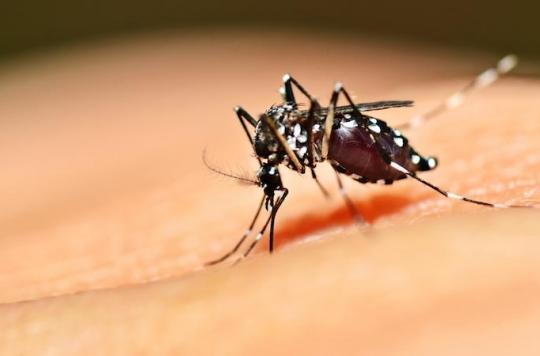Patients infected with dengue fever but without symptoms have a specific immune response. Also effective, it remains discreet.

- Each year, 50 to 100 million new cases of dengue are declared.
- 500,000 cases are severe, and 2.5% are fatal.
- Half of the world’s population lives in an area at risk.
- 18 French departments are concerned, including some in metropolitan France.
Dengue is a silent infection. At least three in four cases do not cause symptoms. Why ? Researchers at the Institut Pasteur – in Paris and Cambodia – may have the answer and are delivering it in Science Translational Medicine. They noticed that the immune system is activated differently in asymptomatic patients.
Understanding the mechanisms of dengue virus infection presents the main research challenge. It is, in fact, an essential step in the development of an effective preventive vaccine. In order to better understand the immune response to the virus, biologists at the Institut Pasteur therefore took plasma serum from 85 children living in Cambodia.
Some of these young patients showed symptoms of the infection, others did not. And these present a very specific reaction. Their bodies make more proteins that signal antigens – which helps attack the virus. But immune activation is extremely controlled. T cells and antibodies are reduced to their bare minimum.
A more effective vaccine
Since the magnitude of the immune response determines the severity of symptoms, their absence therefore seems logical. But for the director of the Functional Genetics of Infectious Diseases unit, these results lead further.
“By exploring patients who are infected but asymptomatic, this study helps to understand the mechanisms that prevent symptoms from developing following infection,” said Anavaj Sakuntabhai in a press release. And, why not, lead to the implementation of a more effective preventive vaccine.
At present, such a product is available, but it remains partially effective. Its impact is limited on some dengue serotypes – and there are four different ones. In addition, acting on the immune response could lead to the development of a specific treatment. For the time being, only the symptomatic aspect of the disease is targeted.
.














